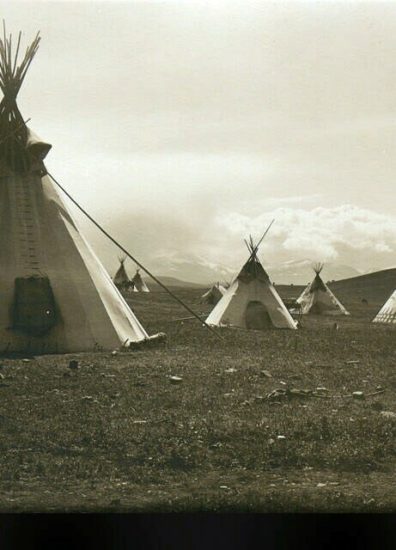
Something is rotten in the state of Denmark.
So says Marcellus in William Shakespeare’s play Hamlet, referring to the corruption in the political hierarchy.
The Bard’s words resonate through the centuries. Especially now as corrupt winds blow gales through the corridors of the nation’s capital. But today, even in D.C., there is reason to be hopeful.
In D.C. Maryland, Columbus Day, a Federal Holiday (since 1937), no longer exists. The D.C. Council voted to replace it with Indigenous Peoples’ Day in a temporary move that it hopes to make permanent. Several other places across the United States have also made the switch in a growing movement to end the celebration of the Italian explorer (commissioned by the Spanish Crown), in favor of honoring Indigenous communities and their endurance, forbearance and commitment to their ancient Heritage and Culture, in the face of decimation by so-called discoverers.

In 2019 three more states including New Mexico (the others were Vermont and Maine), voted in the name change as well. By challenging and changing an old, painful paradigm, the shift in awareness accompanied by the name change, has been a long time coming, and is about celebrating people instead of the Conquest labeled “Discovery” that was actually the harbinger of a large-scale genocide of entire populations across the Americas.
Renaming the holiday to Indigenous Peoples’ Day, shines a light on the Native population’s right to demand that we do not honor Columbus and his fellow “discoverers”, nor do we lionize and glorify them as heroes, when History clearly tells us, they are not.
There’s no comprehensive list of places available that have switched (I did a search last night), but at least ten states now celebrate Indigenous Peoples’ Day on the second Monday in October, including Hawaii (Discoverers’ Day) and South Dakota ( Native Americans’ Day.) Several college campuses have exchanged Columbus Day for Indigenous Peoples’ Day as have more than a hundred cities, towns and counties across America. This movement gathers momentum as more Native People become empowered and have their voices heard.

For Native Americans, Columbus Day has long been a reminder of the violent history of five hundred years of Colonial oppression and subjugation at the hands of European “discoverers” – beginning with the Spaniards and continuing with all who followed and settled here, on what were essentially stolen lands. While we collectively point fingers at others, we too, live in a continued “occupation” of these lands.
When I worked with the late AIM co-founder, Dennis Banks during the early 90’s, he educated me in (untaught), American History. He was graphic in his telling of pillage, rape and plunder; the ultimate genocide of the people, as if to convince themselves (the Conquistadors and Colonizers who would follow), they didn’t exist in the first place.
“That’s not something we want to celebrate.” He told me. “That’s not something anyone with a heart or conscience wants to celebrate.”
As Marianne Williamson notes, this is a time for accountability, “atonement and reparations.”
If we want to move forward and create a new paradigm for a healthy, sustainable future for the next seven generations, we must be prepared to heal the wounds.

And those wounds go deep, and for many of us, have personal ramifications: some of my ancestors left Spain after the Edict of Expulsion was issued by the Crown in April of 1492, just a few months before Columbus set sail on a journey financed by donated and stolen Jewish money. Our money financed a genocide. From the killing fields of Andalusia to Manifest Destiny in Mexico – the cycle of violence began, and continues unabated.
“Celebrating Columbus not only whitewashes a violent history but also discounts the Indigenous people who lived here for millenia in harmony with the earth.” Says musician and film-maker Robby Romero, U.N. Ambassador for Indigenous Peoples and long time Environmental Activist. Robby introduced me to Dennis Banks.
Indigenous Peoples first proposed the day during a 1977 United Nations conference on discrimination against them, but it wasn’t until 1989 that South Dakota became the first state to switch Columbus Day to Native Americans’ Day, celebrating it for the first time in 1990. And then Berkeley became the first U.S. city to switch to Indigenous Peoples’ Day. As I noted earlier in this post, at least ten states now celebrate a version of Indigenous Peoples’ Day.

The “discovery” of America is an opportunity to get our history right, but in order to fully understand it, we have to be clear about who was here first and we need to reflect deeply on what really happened here after that initial displacement of Peoples, and massive genocide occurred.
How might that have affected the rewriting of the history of other minorities who immigrated or were forcibly brought here as slaves? It’s time, methinks to take responsibility for our history and our actions. If we are to have a future at all, we must “be the change we wish to see…”
For more information on Indigenous Peoples’ rights in the Americas and world wide, please visit the sites linked below.
Top image stock files, three Edward Curtis images and Ansel Adams’ Taos Pueblo.


